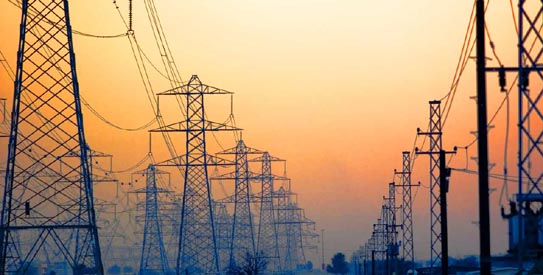
LAHORE: The ministry of water and power itself appears to be stalling the process of reforms in the power sector by hindering hiring of professionals for managing its loss-making subsidiaries causing Rs25 billion a month or almost Rs1 billion every working day in power sector losses.
For the past two years, the ministry has been either hobbling executive search or stopping it midstream when it started keeping cronies at all strategic positions in all organisations under its jurisdiction.
It has neither initiated the selection process nor changed any of the 16 chief executives of its subsidiary organisations, which it was supposed to do to stem the rot and reduce losses.
The subsidiary organisations include four generation companies (Gencos), 10 distribution companies (Discos), one transmission company (National Transmission & Despatch Company Limited) and, most crucially, the Central Power Purchase Agency (CPPA), which is supposed to replace the Pakistan Electric Power Company in October.
The ministry started hunt for the chief executive for the CPPA in the first week of March this year. It advertised the post, received applications and short-listed candidates. Then it suddenly abandoned the entire process for unknown reasons and directly appointed an 'acting chief executive' in the second week of July. The 'acting chief executive', who had not even applied for the job, had earlier been removed from the post of chief executive of a distribution company on alleged charges of nepotism.
In another development, the ministry, instead of locating new chief executives, is insisting on keeping the chief executive of Gujranwala Electric Power Company (Gepco) despite the Lahore High Court having declared his appointment 'illegal'. It is readying to face the contempt proceeding, but is not willing to replace the gentleman.
Of the 10 distribution companies under the ministry, chief executives of Gepco (Gujranwala), Mepco (Multan), Quesco (Quetta), Sepco (Sukkur), Fesco (Faisalabad), Hesco (Hyderabad) are holding 'acting charge'. Most of them are chief engineers, whereas only an officer of the rank of general manager should have been appointed as chief executive.
All the 10 chief executives belonged to the power sector and none of them has come through national executive search as envisaged in the power sector reforms package approved by the Cabinet Committee on Restructuring, which was set up in December 2009.
Similarly, the chief executives of four generation companies have been appointed in the past one year and all of them belonged to the existing power sector. Abdul Malik of Genco-I was appointed last year, Mohammad Aslam of Genco-II and Tariq Nazir of Genco-III some three months ago and Mohammad Anwer of Genco-IV about six months ago. None of them came from “outside the traditional power sector set-up”, as required by the reforms package.
“Problem with every water and power minister is that within weeks of his appointment, he develops interest in a few persons and lucrative posts,” says a former member (power) of Wapda. The other problem arises when the minister starts considering the sector as his fiefdom and begins refusing any outside counsel. The incumbent minister is not an exception because he also wants to do everything; from administration to running the sector to managing machines. The result is a total confusion and the reform process is a regrettable causality, he lamented.
When contacted for his version on the stalled reforms process, Minister for Water and Power Syed Naveed Qamar maintained that his ministry remained committed to the “reforms process, which it inherited, not authored, but there are certain issues that needed to be sorted out before full throttled implementation could be started. For example, whom these subsidiaries would report to once they get fully independent? What would be their accountability process? How would checks and balances system operate? All these questions are of very serious nature because they deal with over Rs650 billion accounts every year. We remain committed to the process, but care has to be taken and responsibilities have to be fixed before just letting everything go”.
He said the ministry had thrashed most of the things out and was taking the plan to the Cabinet Committee on Restructuring.
Once approved, there would be substantial improvement in the sector, he added.













































Dear visitor, the comments section is undergoing an overhaul and will return soon.